Current Project: 2024 - 2027
RLA 7/028 – Strengthening Regional Capabilities on the Application of Nuclear and Isotopic Techniques to Increase Knowledge about Stressors that Affect Marine and Coastal Sustainable Management (ARCAL CLXXXIX)
Previous Projects:
RLA 7/025 – Strengthening Capacities in Marine and Coastal Environments Using Nuclear and Isotopic Techniques (2020-2023).
RLA 7/012 – Use of Nuclear Techniques to Address the Management Problems of Coastal Zones in the Caribbean Region. (2007-2012)
Participating Institutions:
Secretaría de Recursos Naturales y Ambiente (MiAmbiente).

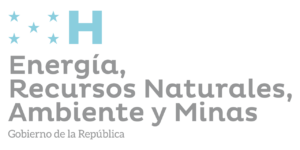
Research Areas:
- Ocean Acidification.
- Chemical Contamination.
- Eutrophication.
- Harmful Algal Blooms (HABs) and Marine Biotoxins.
- Microplastic contamination.
Dirección General de la Marina Mercante de Honduras (DGMM)

Research Areas:
- Ocean Acidification.
- Chemical Contamination.
- Eutrophication.
- Harmful Algal Blooms (HABs) and Marine Biotoxins.
- Microplastic contamination.
Universidad Nacional Autónoma de Honduras (UNAH)

Research Areas:
- Ocean Acidification.
- Chemical Contamination.
- Eutrophication.
- Harmful Algal Blooms (HABs) and Marine Biotoxins.
- Microplastic contamination.
THE PROBLEM
Honduras is located on the Central American isthmus bordering the Caribbean Sea to the north, the Atlantic Ocean and the Gulf of Fonseca to the south in the Pacific Ocean, adding a coastal and insular length of 1,006 kilometers between both coasts and hosting 21 areas Coastal marine protected areas, where numerous and diverse habitats and marine-coastal ecosystems of importance are located, both on a biological-ecological scale, and socio-economic (fisheries and tourism), such as seagrass meadows, sandy and rocky coasts, forests of mangrove and coral reefs.
There is currently no information sustained over time and based on the best scientific knowledge available, about ocean acidification (OA), eutrophication, pollutants and their effects on marine-coastal ecosystems to address and quantify the indicators of the Sustainable Development Goals, with special emphasis on Sustainable Development Goal #14 Life Below Water.
INFORMATION FOR ACTION
Honduras, as a State Party to various international environmental treaties, such as the Convention for the Development and Protection of the Marine Environment in the Greater Caribbean Region - Cartagena Convention, the United Nations Convention on the Law of the Sea - CONVEMAR, the International Convention for the Prevention of Pollution by Ships - MARPOL Convention, among others, has assumed commitments regarding the protection and sustainable use of the oceans, which are constantly exposed to numerous risks, within which it is worth mention pollution, both by land and sea sources, which involves physical chemical changes in seawater which, in turn, has consequences on its flora, fauna, human health and other associated resources.
Country Members:
Carlos Alberto Thompson Flores. Bachelor in International Trade, MSc. in Project Management.

Secretaria de Recursos Naturales y Ambiente (MiAmbiente+)/ Centro de Estudios y Control de Contaminantes (CESCCO).
Role in the Project: National Counterpart.
Contact info: carlosalbertothompson@yahoo.com / cthompson@miambiente.gob.hn / cescco.miambiente@yahoo.com / cescco@miambiente.gob.hn / Tel: +504 8800-8892.
Responsible for fulfilling CESCCO's mission by carrying out our work of Environmental Pollution Control, in the different Environmental matrices as a scientific-technical entity of Honduras, through environmental surveillance and management of chemical substances, provision of laboratory services, responsible for different registries such as RETC, PCBs, Mercury, Fixed Sources, Residual Water Discharges, among others, and the development of research and studies on environmental issues with the purpose of strengthening environmental management in Honduras.
National Focal Point for the International Strategic Approach to Chemicals Management, the Stockholm Convention on Persistent Organic Pollutants, the Basel Convention on the Control of Transboundary Movements and their Elimination, the Rotterdam Convention on the Prior Informed Consent Procedure Applicable to Certain Pesticides and Hazardous Chemicals Object of International Trade, Minamata Convention on Mercury and the Protocol of Land-based Sources of Marine Pollution of the Cartagena Convention for the Protection and Development of the Marine Environment in the Wider Caribbean Region. He is currently a graduate of a Master's Degree in Territorial Planning and Management from the Alcalá de Henares, Universidad Nacional Autónoma de Honduras, Faculty of Space Sciences.
Mersy Areli Barahona Ortega. Bachelor in Biology.

Secretaría de Ambiente y Recursos Naturales (MiAmbiente+) – Centro de Estudios y Control de Contaminantes (CESCCO).
Role in the Project: Eutrophication Component Coordinator.
Contact info: mbarahona@miambiente.gob.hn / messi.gateor@gmail.com /Tel: 504 32771857
She is currently responsible for the Ecotoxicology Laboratory where we carry out analyzes with organisms that indicate toxicity (for example Daphnia magna), culture and maintenance of Chlorella, Artemia, Daphnia and Hydra; Likewise, I have performed functions as assistant and head of the Water Quality laboratory where nutrient analyzes are carried out in environmental matrices (drinking, residual, surface, underground and marine water); the methods developed are based on the standard method 21 edition; She actively participates in research on water quality due to the effects of environmental pollution (mining, wastewater discharges, etc.), attention is given to environmental complaints, and the formulation of projects, among others.
It is worth mentioning that collaboration agreements are made with the academy (Universidad Nacional Autónoma de Honduras “UNAH”) for institutional strengthening and supervision in the development of professional practices, training is provided to students, private and government companies on environmental issues.
Ana Carolina Castillo Navarro. Pharmaceutical Chemistry.

Secretaría de Ambiente y Recursos Naturales (MiAmbiente+) – Centro de Estudios y Control de Contaminantes (CESCCO).
Role in the Project: National Technical Counterpart and Coordinator of the Chemical Contamination Component
Contact info: acastillo@miambiente.gob.hn / acanavarro24@gmail.com /Tel: 504 8734 3435
Environmental analyst of the chemical contaminants laboratory unit since 2002. Experience in sampling, analysis and interpretation of physical chemical parameters in water, soil, sediment, mud, biological tissue and dielectric oil. Analytical expertise in gas chromatographic techniques for the determination of organic pollutants (pesticide residues and total petroleum hydrocarbons), persistent organic compounds (COP's), polychlorinated biphenyls (PCB's), and atomic absorption techniques (flame, furnace of graphite, hydride generator and direct mercury analyzer), for the determination of elements (Arsenic, Cadmium, Copper, Chromium, Manganese, Nickel, Lead, Mercury, Selenium and Zinc) in different environmental matrices. Since 2014 Head of the chemical contaminants laboratory unit and Quality Coordinator of the CESCCO laboratories.
Emilia Isabel Cruz Li. Pharmaceutical Chemist, MSc and PhD in Environmental Toxicology.
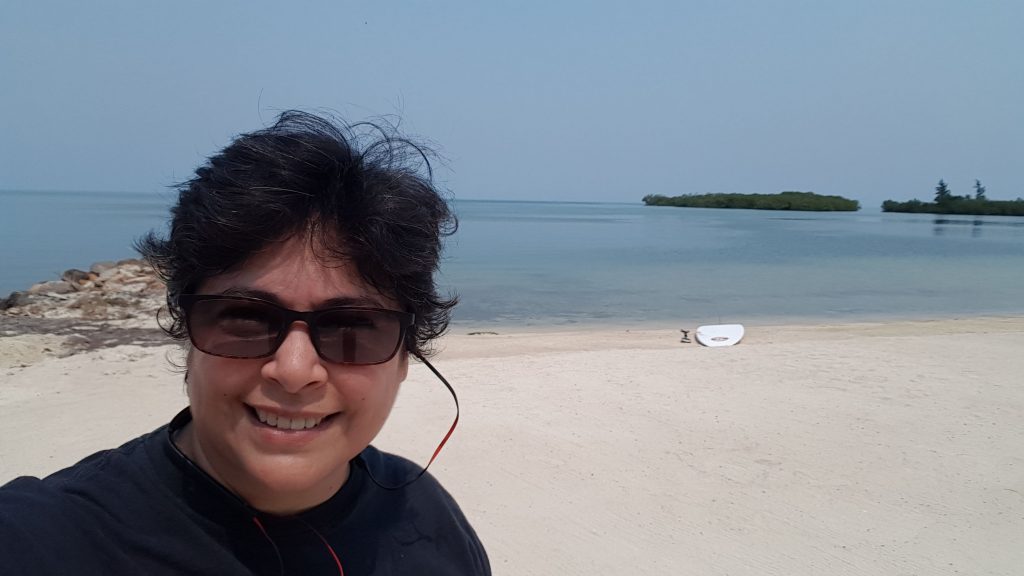
Universidad Nacional Autónoma de Honduras – Centro Universitario Regional del Litoral Atlántico (UNAH-CURLA).
Role in the Project: Collaborator in the Ocean Acidification and Eutrophication Component.
Contact info: Emilia.cruz@unah.edu.hn Tel: +504 9936-1902
PhD in Chemistry and Pharmacy with orientation in Food Technology, postgraduate studies in environmental toxicology from the universities of Clemson in South Carolina (MSc, 1998) and Texas Tech (PhD, 2004). I have elaborated in the Chemical and Biological Analysis Laboratory of the National Association of Meat Packers, in the monitoring of organochlorine and organophosphate pesticides as residues (1992-1995). Professor in the Department of Chemistry, Universidad Nacional Autónoma de Honduras at the Centro Universitario Regional del Litoral Atlántico (UNAH-CURLA) campus since 2012; coordinator of the Aquatic Ecosystems Research Group. The research emphasis has been fresh water quality on the Atlantic coast, to determine the water quality index (ICA). Extensive experience in analytical chemistry using gas chromatography, liquid chromatography (HPLC), and spectrophotometric, gravimetric, and volumetric methods.
Marcela Patricia Garay Canales. Bachelor in Biology.
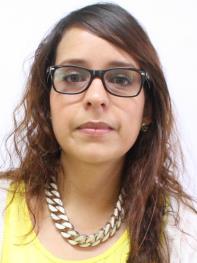
Universidad Nacional Autónoma de Honduras – Centro Universitario Regional del Litoral Atlántico (UNAH-CURLA).
Role in the Project: Collaborator of the Harmful and Toxic Algal Blooms (HAB's) component.
Contact info: marcela.garay@unah.edu.hn Tel: +50433449938
University teacher and researcher at the Centro Universitario Regional del Litoral Atlántico (CURLA-UNAH) from 2015 to date, with experience in limnological studies and water quality analysis using biotic indicators such as; aquatic macroinvertebrates and phytoplankton specifically with potentially toxic cyanobacteria from freshwater ecosystems. She is currently pursuing a Master's degree in Water Sciences with an emphasis on Water Quality.
Mirella González Florentino. Bachelor in Biology.

Dirección General de la Marina Mercante (DGMM).
Role in the Project: Collaborator of the chemical contamination and microplastic component.
Contact info: bgonzalez@marinamercante.gob.hn
Bachelor of Biology from the Universidad Nacional Autónoma de Honduras – UNAH
I work as a Technical Assistant of the Department of Protection of the Marine Environment of the Honduran Maritime Authority since 2017. With experience in the execution and coordination of pollution prevention programs on beaches and coastlines, water quality monitoring, evaluation and formulation of maritime and environmental projects for coastal infrastructure and diving, as well as extensive experience in fishing resources. Similarly, Focal Point in Working Groups on Marine Litter and Microplastics for the Caribbean and for the Northeast Pacific.
Extensive capabilities in the implementation of national and international regulations, with special emphasis on the MARPOL Convention, OPRC 90 Convention, Fund 92 Convention, Ballast Water Convention, Cartagena Convention and MERP Agreement. Special training in the IMO Model courses on preparation and response to spills of hydrocarbons and harmful and potentially dangerous substances, Level 1 and 3, courses on the incident command system and on contingency plans for spills at sea, and certified PADI Diver at Advance level.
Jenifer Hernández Maldonado. Bachelor in Biology.
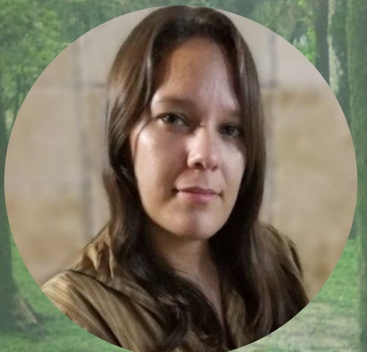
Dirección General de la Marina Mercante (DGMM).
Role in the Project: Collaborator of the Harmful and Toxic Algal Blooms (HABs) and Eutrophication component.
Contact info: jmaldonado@marinamercante.gob.hn / Tel: +504 9881-2493
Technical assistant of the Department of Protection of the marine environment, in Puerto Cortés.
With experience in the management of wildlife, protected areas, in the management of pollution caused by the maritime and port environment, such as hydrocarbon spills in the sea, maritime constructions, evaluation of marine-coastal projects, monitoring of marine litter , beach cleaning, reforestation and water quality monitoring.
Joel Doland McLaughlin Matute. Degree in Ecotourism.
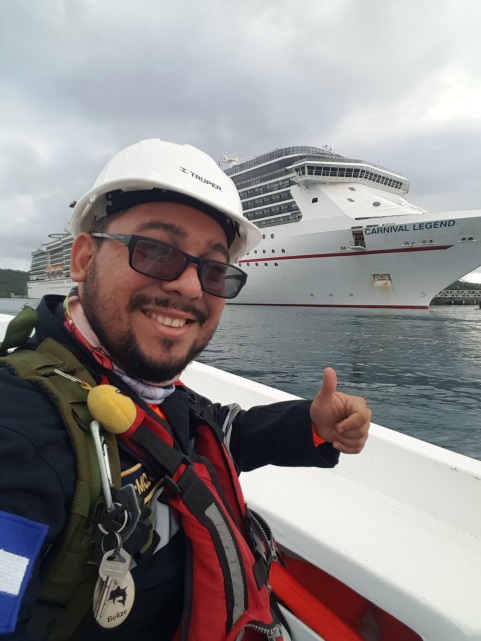
Dirección General de la Marina Mercante (DGMM).
Role in the Project: Collaborator of the ocean acidification component.
Contact info: jmclaughlin@marinamercante.gob.hn / dolandmc@gmail.com / Tel: +504 9846-7781
As an Environmental Technical Officer of the Department of Protection of the Marine Environment assigned to the Bay Islands, I develop the functions of control and surveillance in the development of activities with the risk of spills of hydrocarbons and their derivatives, as well as potentially harmful substances to the sea, giving special attention quickly and timely in the event of a spill incident for its containment, recovery and safe disposal, control the development of infrastructures or ocean and coastal engineering works in order to minimize the negative effects on marine-coastal ecosystems and avoid illegal developments that put at risk natural resources, address complaints of environmental damage to marine ecosystems in coordination and cooperation with other government entities as well as with the support of non-governmental environmental organizations, represent the General Directorate of the Merchant Marine before the committee of the National Marine Park Islands of the Bay and in the topics we relate to the regulation, control and protection of marine-coastal resources in the islands and the Honduran Caribbean coast.
Ítalo Bonilla Mejía. Bachelor in Biology.
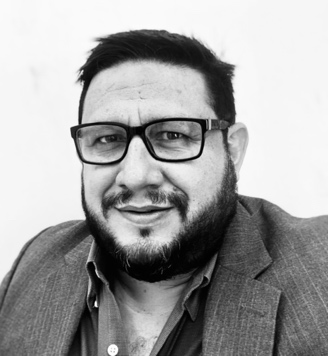
Dirección General de la Marina Mercante (DGMM).
Role in the Project: Collaborator of the ocean acidification component.
Contact info: ibonilla@marinamercante.gob.hn / Tel: +504 9993-9834
With a degree in Biology with an emphasis in Aquatics, he currently works as a Biologist within the Department of Marine Environment Protection, his scope of work focuses on maritime environmental inspections along the coastal areas of Honduras, as well as his later analysis.
His specialty is focused on evaluations of marine ecosystems in the Honduran Caribbean, oriented to the connectivity between reef fish and coral reefs, and currently he has combined all his knowledge acquired in the maritime environmental area such as the execution and coordination of pollution prevention programs on beaches and coastlines and emphatically in the preparation and response to spills of hydrocarbons and harmful and potentially dangerous substances, levels 1, 2 and 3.
His experience is based on 15 years of combined experience in conservation and research within various Marine Protected Areas of the country, as well as in the maritime area through the General Directorate of the Merchant Marine.
María Aracely Membreño Girón. Pharmaceutical chemist.

Secretaría de Ambiente y Recursos Naturales (MiAmbiente+) – Centro de Estudios y Control de Contaminantes (CESCCO).
Role in the Project: Ocean Acidification Component Coordinator.
Contact info: amenbreno@miambiente.gob.hn / aracelymembreno@gmail.com / Tel: 504 9939 3989
Head of the water quality laboratory unit since 1994. Experience in sampling, analysis and interpretation of results of physical-chemical parameters for water for human consumption, aquaculture, flora and fauna, irrigation and livestock, wastewater discharge and reuse. She has coordinated and participated in water quality research projects, analytical quality control and service provision. Currently Coordinator of the CESCCO laboratories, evaluator and technical expert on physical-chemical parameters of the Honduran accreditation body (OHA), member of the OHA advisory committee, and member of the board of directors of the Global Water Partnership (GWP), and advisor to students of professional practice.
Víctor Manuel Pineda Alvarado. Doctorate degree in Microbiology with orientation in Water, Food and Molecular Biology.
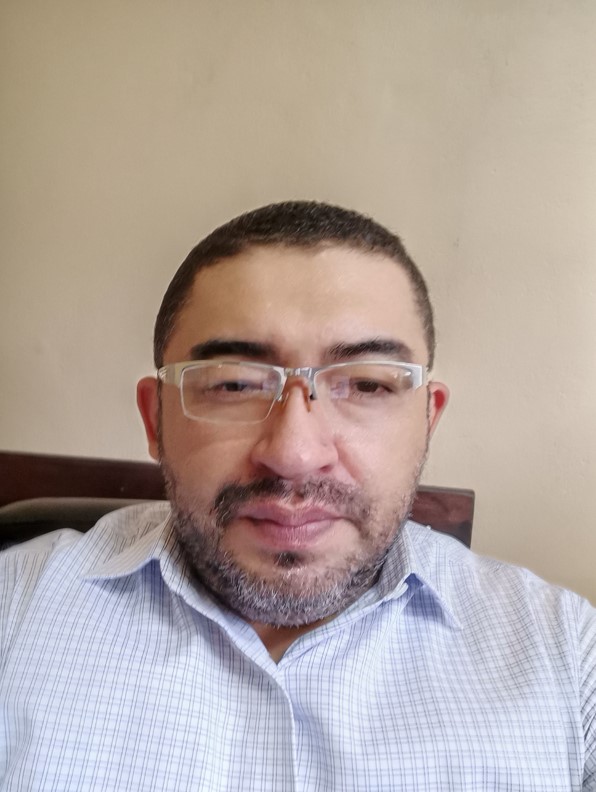
Secretaría de Ambiente y Recursos Naturales (MiAmbiente+) – Centro de Estudios y Control de Contaminantes (CESCCO).
Role in the Project: Coordinador de componente microplásticos y floraciones Algales Nocivas
Contact info: vpineda@miambiente.gob.hn / pineda.alvarado@gmail.com / Tel: 504 9792-7742 / Skype: vpineda21
My current position is head of the Food and Water Environmental Microbiology Laboratory, monitoring microbiological contaminants in environmental and food matrices, developing research on different food products distributed nationwide. Likewise, I was part of the list of evaluators and technical experts of the Honduran Accreditation Agency in Honduras (OHA), as well as the institutional counterpart of the Codex Alimentarius Committee in Honduras, and national focal point for the regional fund for the management of wastewater in the Greater Caribbean region, in the period from 2013 to 2018, as well as a member of the technical committee for flagging beaches in Honduras, as well as technical liaison for the protocol for the Protection of Pollution in marine areas from Sources and Activities Terrestrial.
Jesús Alexis Rodríguez Matute. Industrial Chemical Engineer, MSc. in Water Sciences and in Business Administration.

Universidad Nacional Autónoma de Honduras-Centro Universitario Regional del Litoral Atlántico (UNAH-CURLA).
Role in the Project: Collaborator of the microplastics and chemical contamination component.
Contact info: jesus.rodriguez@unah.edu.hn Tel: +504 99368560
He is a teacher and coordinator of the Soils Laboratory, in the Department of Soils at UNAH-CURLA, he currently directs the implementation of the quality management system under the ISO/IEC 17025 Standard. He was a member of the chemistry department and was coordinator of the laboratory of Environmental Analysis. He was supervisor and quality manager of the WHAL laboratory of the Dole company.
He is a member of two research groups: the "Aquatic Ecosystems, with emphasis on marine-coastal zones" and the "Use, management and conservation of soils". His lines of research are: the evaluation of sedimentation rates, dating of sedimentary cores, sediment and soil quality with emphasis on the evaluation of organic and metallic contaminants, and their relationship with water quality and aquatic macroinvertebrate communities. He works on estimates of blue carbon in marine-coastal ecosystems. He has participated in various university-society link projects related to the environment.
Sara Isabel Zelaya Landa. Bachelor of Biology, MSc. in Environmental Management of Water Systems.

Dirección General de la Marina Mercante (DGMM).
Role in the Project: Collaborator of the Harmful and Toxic Algal Blooms (HABs) and Eutrophication component.
Contact info: szelaya@marinamercante.gob.hn / Tel: +504 98273483
Degree in Biology from the Universidad Nacional Autónoma de Honduras – UNAH and Official Master's Degree in Environmental Management of Water Systems from the Universidad de Cantabria, Spain.
Assistant of the Department of Protection of the Marine Environment of the Honduran Maritime Authority since 2015, head of the unit since 2017. Trained in national and international regulations (MARPOL Convention, OPRC 90 Convention, CLC 92 Convention, Fund 92 Convention, on Ballast Water, Convention on Ship Antifouling Systems, Cartagena Convention, among others) in the maritime-environmental field, with IMO Model courses on preparation and response to oil spills and noxious and potentially dangerous substances, Level 1, 2 and 3, courses on incident command system and spill contingency plans. National focal point for ocean sector issues before the United Nations Organization, with special emphasis on the process of adopting a legally binding document within the framework of CONVEMAR for the conservation and sustainable use of biodiversity in waters beyond jurisdiction national.
Progress and Challenges
The main challenge is to strengthen the human and analytical capacities of research laboratories for the standardization of methodologies for the study of our marine-coastal systems, based on stressors related to global change (acidification, eutrophication, organic and inorganic contaminants, microplastics and blooms). harmful algae).
Likewise, it is necessary to know the impact of these stressors on our marine-coastal zones and how this can affect different ecosystem services in the study areas.
It is also essential to develop a baseline to establish national strategies, policies and regulations that are aimed at addressing the needs and priorities of the country, as well as implement a monitoring program that contributes to generating scientific information for decision making and reporting of the SDG 14.
